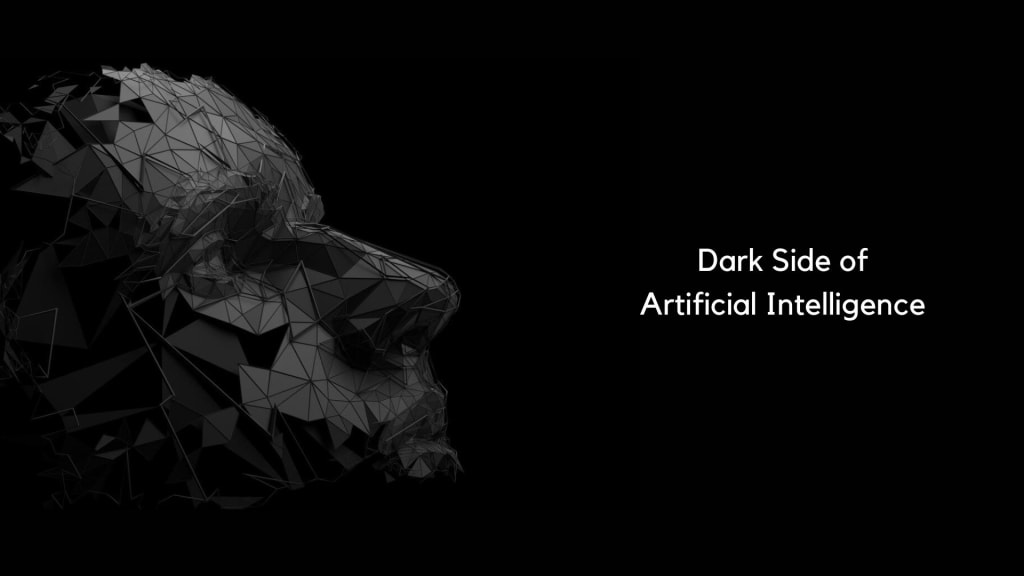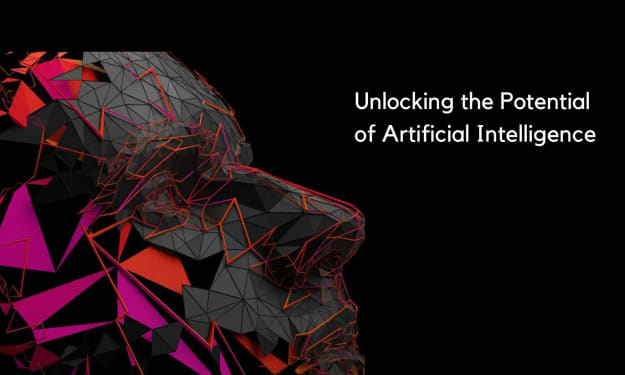The Dark Side of AI
Unveiling the Unintended Consequences

Artificial Intelligence (AI) has transformed numerous industries, revolutionizing the way we live and work. However, there is a darker side to this technology that often goes unnoticed. In this blog post, we delve into the hidden perils and ethical concerns surrounding AI, shedding light on its potential negative impacts.
Unintended Consequences of AI:
1. Bias and Discrimination:
AI algorithms can inherit the biases and prejudices present in the data they are trained on, leading to discriminatory outcomes.
2. Job Displacement:
As AI becomes more advanced, there is a growing concern about job loss and unemployment as machines replace human workers.
3. Privacy and Security Risks:
The vast amount of data collected and processed by AI systems raises significant privacy and security concerns, potentially exposing sensitive information.
4. Lack of Transparency:
AI systems can be complex and difficult to understand, making it challenging to trace the decision-making process and ensure accountability.
Ethical Concerns with AI:
1. Ethical Decision-Making:
AI systems may face ethical dilemmas, such as choosing between saving different lives or prioritizing certain outcomes over others, raising questions about the moral responsibility of AI developers.
2. Autonomy and Accountability:
AI's ability to make autonomous decisions challenges the traditional understanding of accountability, as it becomes challenging to assign responsibility for the actions and decisions made by AI systems.
3. Weaponization of AI:
The potential use of AI in military applications, surveillance, and autonomous weapons raises serious ethical concerns regarding the loss of human control and the potential for unintended consequences.
FAQs:
Q1: Can AI algorithms be completely unbiased?
A1: While efforts are made to minimize biases, AI algorithms can still exhibit bias due to the data they are trained on.
Q2: Will AI eliminate jobs across all industries?
A2: AI has the potential to automate certain tasks, leading to job displacement, but it can also create new job opportunities in emerging fields.
Q3: How can we ensure the transparency and accountability of AI systems?
A3: Developing transparent AI algorithms, promoting ethical frameworks, and implementing regulatory measures are crucial steps toward ensuring transparency and accountability.
Sure, here's the continuation:
While AI holds immense promise, it is crucial to navigate its potential risks and dark side. Governments, organizations, and individuals must collaborate to establish guidelines and regulations that ensure AI is developed and deployed ethically.
To counter the issue of bias in AI, diverse and representative datasets should be used during the training process. Rigorous testing and ongoing monitoring can help identify and rectify biases that may emerge over time.
Additionally, governments and industry leaders must address the concerns surrounding job displacement. This can be achieved by investing in reskilling and upskilling programs to empower workers with the necessary skills to adapt to an AI-driven job market. Creating a balance between human workers and AI technologies can result in a more productive and equitable workforce.
Sure, here's the continuation:
While AI holds immense promise, it is crucial to navigate its potential risks and dark side. Governments, organizations, and individuals must collaborate to establish guidelines and regulations that ensure AI is developed and deployed ethically.
To counter the issue of bias in AI, diverse and representative datasets should be used during the training process. Rigorous testing and ongoing monitoring can help identify and rectify biases that may emerge over time.
Additionally, governments and industry leaders must address the concerns surrounding job displacement. This can be achieved by investing in reskilling and upskilling programs to empower workers with the necessary skills to adapt to an AI-driven job market. Creating a balance between human workers and AI technologies can result in a more productive and equitable workforce.
To protect privacy and security, robust data protection laws and encryption standards should be enforced. AI systems must be designed with privacy in mind, ensuring that personal data is handled responsibly and securely.
Transparency in AI decision-making is paramount. Developers should prioritize explainability and interpretability of AI systems. This would enable users and stakeholders to understand how decisions are made and identify any potential biases or errors.
Addressing the ethical concerns surrounding AI requires interdisciplinary collaboration between technologists, ethicists, policymakers, and society at large. Open discussions and public consultations can help shape regulations and ethical frameworks that guide AI development and deployment.
As AI continues to advance, it is essential to recognize and address the dark side of this powerful technology. By understanding the unintended consequences and ethical concerns associated with AI, we can work towards developing responsible AI systems that benefit society while minimizing potential harm. Let us embrace the potential of AI while also safeguarding against its negative impacts to create a future where technology and humanity coexist harmoniously.
About the Creator
Ramis Hussain
Hey there! I'm Ramis Hussain, a passionate writer and storyteller on a mission to inspire and engage readers through the power words. With a love for exploring diverse topics, I delve into thoughtful articles and heartfelt personal essays.






Comments
There are no comments for this story
Be the first to respond and start the conversation.